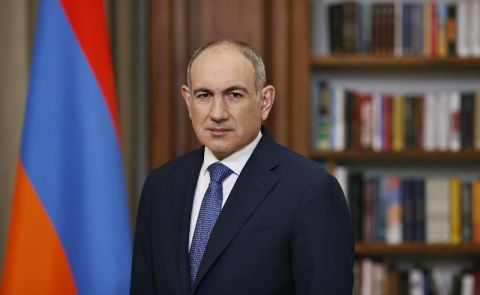
Georgia reports new record of daily Covid-19 cases; government postpones the opening of schools

On 11 September, Georgia reported a record 87 new cases of Covid-19, of which 29 were registered in Batumi, in the Adjara region of Georgia and the source of 10 cases were unknown. The total tally stands now at 1917 cases and 19 reported deaths.
Speaking on the sharp increase in the number of Covid-19 cases in the country, the medical director of the Tbilisi Infectious Diseases Hospital Marina Ezugbaia emphasized that at this stage it was due to increased mobility and less compliance with regulations of the Georgian citizens. She also stated that it is not because of the second wave, which according to her is expected later in the fall. She added that after the Adjara region, the second new epicentre of Covid-19 became the city of Kutaisi where a tent has been set up in front of the government building to enable locals as well as visitors to undergo voluntary coronavirus testing. She also noted that Georgia has now left the green zone, but at the same time, she emphasized that the healthcare sector is ready to deal with this challenge. Ezugbaia also presented the current state of people who are undergoing treatment from the virus. “Currently, 536 people are undergoing treatment at Covid centres of which four are in critical and 17 are in severe condition,” she said.
The director of the Tbilisi Infectious Diseases Hospital Tengiz Tsertsvadze said that currently there “is an increasing trend in Covid-19 cases all over the world,” but he pointed out that Georgia has the smallest number of Covid-19 cases per one million people compared to the regions of Europe and America. He also noted that in Georgia, the issue of clinical management for handling the increasing number of coronavirus patients is coming to the fore. “It is very difficult to give some guarantees under coronavirus, but we declare with full responsibility that we will try to maintain a very high recovery rate and a low fatality rate. The population can be calm, but being calm does not mean ignoring the regulations, not following the necessary protective measures, and to loosen up. Being too relaxed triggered a recent increase in Covid-19 cases,” he stressed.
The Director of Georgia’s National Centre for Disease Control Amiran Gamkrelidze attributed the sudden appearance of large new clusters of the virus to a ‘lack of responsibility’ among the public. He claimed all of them had originated from several weddings and parties held at the end of August.
In order to cope with the new situation in the country, Georgia’s Prime Minister Giorgi Gakharia announced that schools and higher education institutions in Tbilisi, Kutaisi, Rustavi, Zugdidi, and Gori will not reopen on 15 September, but on 1 October instead. A day earlier, Georgia’s Labour Conditions Inspection Department said that 81 out of 1,500 schools that they had checked failed to meet epidemiological safety standards.
However, despite the sharp rise in new cases, the government was hesitant to reintroduce harsh social-distancing restrictions. “We don't plan, and we are not ready to introduce strict economic restrictions,” Gakharia said. He also categorically denied that there was any plan to postpone the date of the parliamentary election, set for 31 October.
In addition, Gakharia instructed the Georgian Ministry of Health to prepare 3,000 hospital beds in the coming days for fast and effective treatment in case of an increase in Covid-19 cases. Gakharia also noted that an average of 8 000 PCR tests are conducted in the country on a daily basis and stressed that the number will increase to 10 000 in the near future.
See Also


Armenia Strengthens Ties with Council of Europe

Former Armenian President Labels Pashinyan a Traitor and Blasphemer

Pashinyan Addresses Key Issues on Church, National Future, and Fund Allegations

Azerbaijan Calls for 'Dialogue and Diplomatic Resolution' Between Israel and Iran

